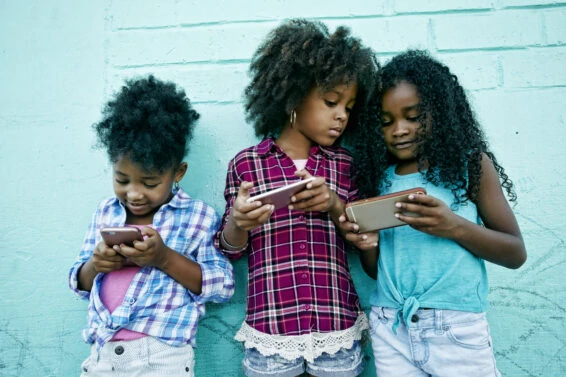Your Genesys Blog Subscription has been confirmed!
Please add genesys@email.genesys.com to your safe sender list to ensure you receive the weekly blog notifications.
Subscribe to our free newsletter and get blog updates in your inbox
Don't Show This Again.

I’m biracial — black and white. I was adopted as a baby into a white family, and it was obvious I didn’t look like them. The topic of our different skin tones was never a discussion until society continuously pointed it out. Even as a baby, a stranger asked my mom if she had permed my hair to make it so curly. It was awkward, and she didn’t know how to respond. My parents’ love for me was the same, though, despite our outward differences.
As I grew up and navigated the world, the questions and comments about my skin, my hair and my overall Black self, continued to be topics of discussion. In grade school, girls would d ask why my hair was “so poufy and big” while running their sticky fingers through my coils. I wouldn’t know how to answer them; it was just my hair. My curly hair and my caramel skin were all I had ever known. When the summer months rolled around, my friends with lighter complexions would compare their summer tans to my natural melanin to gauge their sun-kissed progress. These were some of my first experiences with microaggressions, though I didn’t know that’s what they were at the time.
I wanted so badly to “fit in,” so that’s when the relentless straightening of my hair began. I would even avoid the sun so I could let my peers “catch up” to my complexion. I didn’t want to stand out — and I didn’t want to be the target of questions when my peers would be curious about Black culture. And if I’m being honest, I knew just as much as them because I had been adopted into a white family. But because of my outward appearance, I was expected to know certain things and act certain ways. However, I was always too Black for my white friends and too white for my Black friends.
I felt like I didn’t belong anywhere.
As I got older and I moved away to college, my group of friends changed. I started surrounding myself with more people who shared similar experiences and were more open-minded. I met the best group of Black women my freshman year of college. They taught me things, with love, that my white parents just didn’t know. We covered everything from wrapping my hair and wearing a bonnet at night to protect my curls while I slept to explaining different family traditions. I wasn’t ridiculed for my big curly hair; I was complimented for it. I didn’t have to change what I naturally looked like for anyone — and especially for myself.
We would lay in the sun together and let our brown skin turn gold. It was then that I began to love who I was — naturally. Seeing others love themselves made me love myself.
I’m so grateful to work for a company that not only embraces differences, but also celebrates them. I was welcomed at Genesys from day one. I’ve been encouraged to step out of my comfort zone, take on stretch projects and embrace who I am. I’ve learned the power of sharing my story and finding others that intersect with mine.
Because of the diverse and inclusive atmosphere at Genesys, I learned one of my teammates wasn’t only a transracial adoptee like myself, but also born at the same hospital as me. I’ve been welcomed here with open arms and treated like family. I feel celebrated for my differences — and not seen as a token. I belong.
Subscribe to our free newsletter and get blog updates in your inbox.